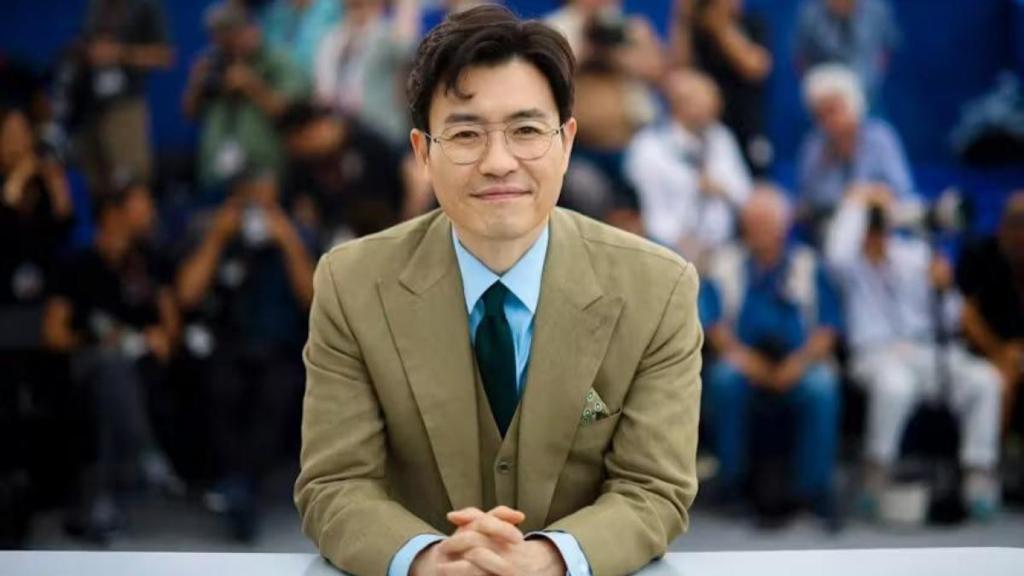One of the longest applauses for a premiere at the Cannes Film Festival this year was reserved for a South Korean film. I, The Executioner, an action thriller directed by Ryoo Seung Wan, was the sequel to the filmmaker’s 2015 blockbuster Veteran, the story of a police detective who probes a powerful conglomerate in the murder of a truck driver. Veteran became the fifth largest grossing Korean film ever, establishing Wan as the ‘action kid’ of South Korea. Nine years later, Veteran 2—part of the Midnight Screenings section of the Cannes festival—brings detective Seo Do-cheol back to investigate a serial murder. A prolific filmmaker who uses action as a narrative to “reflect the blurred lines between good and evil”, Wan began making films in the middle of ’90s when South Korean cinema was undergoing a renaissance after coming out of censorship witnessed during the dictatorship in the previous two decades.
His films like Crying Fist (2005), The City of Violence (2006) and The Berlin File (2011) announced the arrival of the Korean action thriller along with such successful directors as Kim Jee Woon, Na Hong Jin and Park Chan Wook. Wan, an admirer of Indian action thrillers like Rajinikanth’s Enthiran (Robot) and the Hrithik Roshan-starrer Krrish, talks to Faizal Khan in Cannes about the success of Korean cinema worldwide and his philosophy of filmmaking. Excerpts from an interview:
How has using action as a narrative led to the popularity of South Korean cinema?
When I started in the movie industry, action was not mainstream in Korea. There was something common to the people who made their debut in the late ’90s and the beginning of the new millennium. Until the ’80s in Korea, politically we were under a dictatorship. There were a lot of art forms that were censored, especially action movies. But starting in the ’90s there was democracy in Korea and censorship disappeared. You had the Busan International Film Festival that was created in 1996. So the culture of Korean cinema underwent a renaissance.
What changed for Korean cinema in the ’90s?
Beginning in the middle of ’90s, there was a period of great adventure or experience in Korean cinema. Even the investment in cinema became more open to something new. From the late ’90s until the middle of the first decade of the new millennium, you had an explosion of new cinema in Korea. I think at that time everybody had the courage to make movies that could be failures. That was the beginning of what people now enjoy in Korean movies.
You went through a tough childhood losing both parents early and had to do odd jobs to survive. Did that drive your ambition to become the successful filmmaker that you are today?
I don’t know, it is a hypothesis. But one thing I am sure about is that poverty was a gift for me.
How do you give back to society?
I do philanthropy. But I don’t want to boast about it. Usually, like any other people, we have to do that kind of work. But there is nothing to boast about. I am just the average person who does charity.
Asian cinema, from India, China, Korea and Japan, has been influencing people around the world. Do you think Asia could lead the world, which is facing so many problems like war and refugee crisis, in the cultural scene?
Why do you think culture has to lead? The first thing is to stay where it is. I think the word lead is very imperialistic. I think when you like something you could just go and see, for example, a movie. The way to lead, it implicates annihilating someone’s culture or imposing on another culture. The best thing is to keep each other’s originality, each other’s characteristics and the respect for each other. I think that is what culture really means. I think lead is a very very dangerous thing. It means culture and art are approached like politics and economy.
Do you watch Indian movies?
I have never been to India, but my children loved watching 3 Idiots. Personally, I liked the movie, Robot. I really liked it. Also, the superhero movie, Krrish. I watched it at the Busan film festival and really enjoyed the movie.
Veteran was released in 2015. How long have you been working on a sequel?
I wrote the sequel immediately after Veteran was released, but then I changed my mind. I rewrote it and each time it was a repetition. It took me a long time to think and write the sequel. But the finished version that you see now, I would say I wrote it just when I had finished writing my previous movie, The Smugglers, which was released last year. So I would say it took three years. We shot the film in the winter of 2022 in Seoul and its surroundings.
The Escape From Mogadishu, the political action thriller you directed in 2021, dealt with the civil war in Somalia in the ’90s and the escape of Korean embassy workers stranded in the Somali capital Mogadishu.
I couldn’t go to Somalia to make the movie because from Korea it is forbidden to travel to Somalia. It is illegal, but I met a lot of Somalian people, people who had experienced civil war in the country. We searched different archives and documents and talked to Somali students living in Korea.
What is the release date for Veteran 2?
We will release the sequel in Korea at the end of this year, followed by the global release.
What are you working on now?
Maybe I will begin shooting a new movie this winter. It is an espionage movie taking place in Russia.


